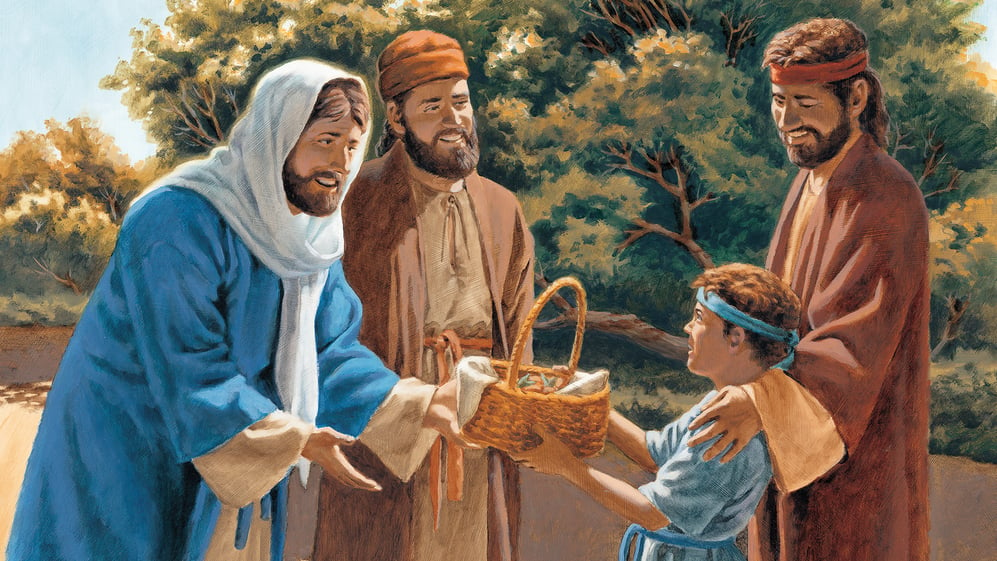This month, we look at one of the lesser-known apostles, Philip. I have an affinity with this apostle as we share the same name. One of my personal geeky interests is philology, the study of languages. The name Philip is derived from Greek and means “one who loves horses.” the first half of the name, Phil, is related to Philadelphia and philanthropy. The second half, ip, is related to hippopotamus, which means “river horse.” Interesting? Let’s study Philip!
Key Verses
John 1:45
Philip found Nathanael and said to him, “We have found Him of whom Moses in the Law and also the prophets wrote, Jesus of Nazareth, the son of Joseph.”
John 6:5
Lifting up His eyes, then, and seeing that a large crowd was coming toward Him, Jesus said to Philip, “Where are we to buy bread, so that these people may eat?”
John 14:9
Jesus said to him, “Have I been with you so long, and you still do not know Me, Philip? Whoever has seen Me has seen the Father. How can you say, ‘Show us the Father’?”
Acts 1:13
And when they had entered, they went up to the upper room, where they were staying, Peter and John and James and Andrew, Philip and Thomas, Bartholomew and Matthew, James the son of Alphaeus and Simon the Zealot and Judas the son of James.
What We Know about Philip
- Jesus called him directly (John 1:43).
- He was from Bethsaida (John 1:44).
- He invited Nathanael to meet Jesus (John 1:46).
- He was present with Jesus at the feeding of the five thousand. (John 6:5)
- Jesus tested Philip’s faith by suggesting that they could purchase enough food for the five thousand present. (John 6:5)
- He failed to see the connection between Jesus and the Father. (John 14:8-9)
- He was present to replace Judas with Matthias. (Acts 11:13)
- Abandoned Jesus at His arrest in the Garden of Gethsemane. (Matthew 26:56)
- Was present for Jesus’ ascension. (Matthew 28:16)
- Was present for Pentecost. (Acts 2:14)
Philip Struggled with Sin
The apostle Philip illustrates one of the most dangerous and pervasive misunderstandings held by people today—that Jesus is special, even unique in human history, but He is not God Almighty. In John 14, Jesus is with His disciples in the upper room. He has just washed their feet. He follows this up with a promise that the disciples will have a room with Him in heaven. Our Savior then asserts that He is the only way to heaven; He is the Way, the Truth, and the Life. It’s here that Philip expresses his misunderstanding. Jesus begins, “If you had known Me, you would have known My Father also. From now on you do know Him and have seen Him.” Philip said to Him, “Lord, show us the Father, and it is enough for us.” Philip recognizes that Jesus is sent from the Father and that He is the Savior. From Philip’s words above, we understand that he didn’t acknowledge that Jesus is God Almighty, that is, fully and equally God. It’s not until after Christ’s resurrection and ascension that Philip understands.
Sound familiar? This belief is popular in our culture today. There are many who are quite willing to accept Jesus as a great teacher and example, perhaps even that He held some amount of divine power, but that’s all. There are two reasons for this misunderstanding. First, without the work of the Holy Spirit, we can never recognize Jesus as God. Second, as soon as I accept Jesus as God, I can no longer reject or dissect Christ’s words regarding sin and hell. I don’t need a Jesus who is only man. I do need a Savior who is also God.
Just as Philip failed to recognize Jesus as one with the Father, the apostle also failed to grasp Jesus’ power and mission. In John 6, we read, “Lifting up His eyes, then, and seeing that a large crowd was coming toward Him, Jesus said to Philip, ‘Where are we to buy bread, so that these people may eat?’” We don’t get the sense that any of Jesus’ disciples understood the feeding of the five thousand fully. But Jesus knows full well what He plans to do. Our Savior’s question to Philip is designed to test, to lead the apostle to understand that Jesus comes not merely to provide bread for today but for eternity. Of course, Jesus is concerned with the crowd’s hunger. Notice, however, that Jesus passes the bread to the disciples, and that there are twelve baskets remaining. This points to Christ’s giving of Himself as the bread from heaven, His passing of His ministry to the twelve, and an endless supply of grace and mercy illustrated by the remaining baskets.
Classroom Ideas for Teaching Philip
Philip is an excellent apostle for topical discussion with older students. Use the questions below as prompts for discussion related to Jesus’ identity and mission.
- Who do you believe Jesus to be? Why?
- Do you believe the Bible to be God’s Word? In other words, can we trust what it says about Jesus?
- If not, what sources suggest that Jesus is merely a teacher, spiritual leader or good example (parents, friends, professors, entertainers)? Why is their point of view more compelling or valid than the Bible?
- What was Jesus’ main reason for coming into the world—to teach the love of God, to lead people to love each other, to die for the sins of the world? Explain your point of view.
Find more ways to teach the apostles to your students.












